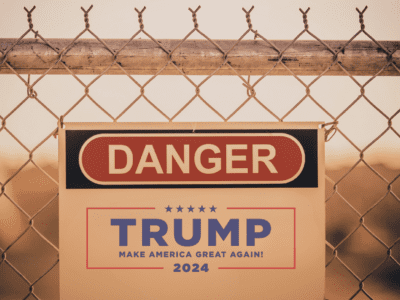Environmental Cover-ups and the Bureaucracy
Ann wants to know, “why do governments engage in obfuscation in the case of a major environmental crisis?” The assumption here is that the public is going to find out eventually, so why cover it up now and make it worse? Well, here’s a theory.
Note that “governments” don’t do anything — people do. “Government” is something of a reification; the only potential actors are, of course, people. And that changes the incentives somewhat.
If I’m the person in charge of a particular problem and there is an environmental disaster coming down the pike, my incentives are quite different from the government’s. Suppose that there is an 80% chance of disaster (say, fuel-rod meltdown) occurring. If that happens, everyone is in trouble, but me especially, because it’s my responsibility. It’s better for me to take the risk on the 20% happening, because if the 80% happens, I’m toast anyway. I don’t care about “the government’s” long run credibility because I won’t be in the government over the long run.
We can make an analogy somewhat to the CEO of a flailing corporation. It’s not in the corporation’s interest for me to bet company money on risky investments, because that reduces corporate value. But it’s very much in my interest: if it doesn’t work, I was going to be sacked anyway, but if it does work out, then I might save my job. My theory is that similar dynamics are at work here.
So the problem here isn’t “the government.” It’s those pesky “people” who are running it. But unfortunately (or perhaps fortunately), we really don’t have any other choice.
Reader Comments
One Reply to “Environmental Cover-ups and the Bureaucracy”
Comments are closed.







bqrq wants to know; “why do governments engage in obfuscation in the case of minor environmental problems?” The assumption here is that the public is not going to find out eventually, so why not obfuscate and make it sound worse than it is? Well, here’s a theory.
Note that “governments” don’t do anything — people do. “Government” is something of a reification; the only potential actors are, of course, people. And that changes the incentives somewhat.
If I’m the person in charge of a particular problem and can it make sound like an environmental disaster coming down the pike, my incentives are quite different from the government’s. Suppose that there is a 2% chance of disaster (say, sea level rise) occurring. If that does not happen, not everyone is in trouble, me especially, because it’s not my responsibility. It’s better for me to take the risk on the 98% happening, because if the 2% happens, no one will be pointing fingers at me. I don’t care about “the government’s” long run credibility because I won’t be in the government over the long run.
We can make an analogy somewhat to the CEO of a failing corporation. It’s not in the corporation’s interest for me to bet company money on risky investments, because that reduces corporate value. But it’s very much in my interest: if it doesn’t work, I was going to be sacked anyway, but if it does work out, then I might save my job. My theory is that similar dynamics are at work here.
So the problem here isn’t “the government.” It’s those pesky “people” who are running it. But unfortunately (or perhaps fortunately), we really don’t have any other choice.